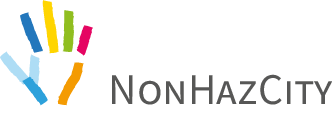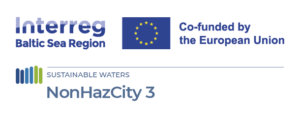The municipal Chemical Action Plans (CAPs) have been one of the main outputs of the preceding Interreg Baltic Sea Region project “Innovative management solutions for minimizing emissions of hazardous substances from urban areas in the Baltic Sea Region” (NonHazCity) being implemented during 2016-2019. The flagship NonHazCity has developed CAPs for several Baltic Sea region cities, regions, and municipalities, paving the way to a more sustainable management of chemicals in the region.1 These plans are strategic documents which gather all measures taken in the municipality to derive, justify, compile, and coordinate all municipal activities related to the targeted reduction of hazardous substances. However, the existence of such a document does not guarantee the implementation of CAPs. Adequate organisational structures must be developed to exert long-term effects. Assessing whether municipalities succeed with the implementation or not was a challenging task assigned for the extension project NonHazCity2 (2019-2021), conducted against the baseline of the elaborated CAPs by the partner cities. Evaluation of results of the information gathering was looked from different perspectives:
• The CAP as a promising tool to reduce the uses of products containing hazardous substances at municipalities
• Assessing the level of recognition of the CAPs and its effectiveness, and its potential to activate and involve stakeholders
• The process of anchoring CAPs and GPP measures into municipal procedures
• Supporting further implementation of the CAPs by assessing obstacles and barriers, finding solutions for typical situations, and making the proposed measures working in a long-term perspective
This publication has been developed with contribution from the NonHazCity project partners to the assessment of implementation of the CAPs and application of green public procurement (GPP) procedures at municipalities. Continuous monitoring of the on-going implementation of CAP measures and the use of GPP was performed and reflected by filling the information templates and reporting at the project partners meetings.

